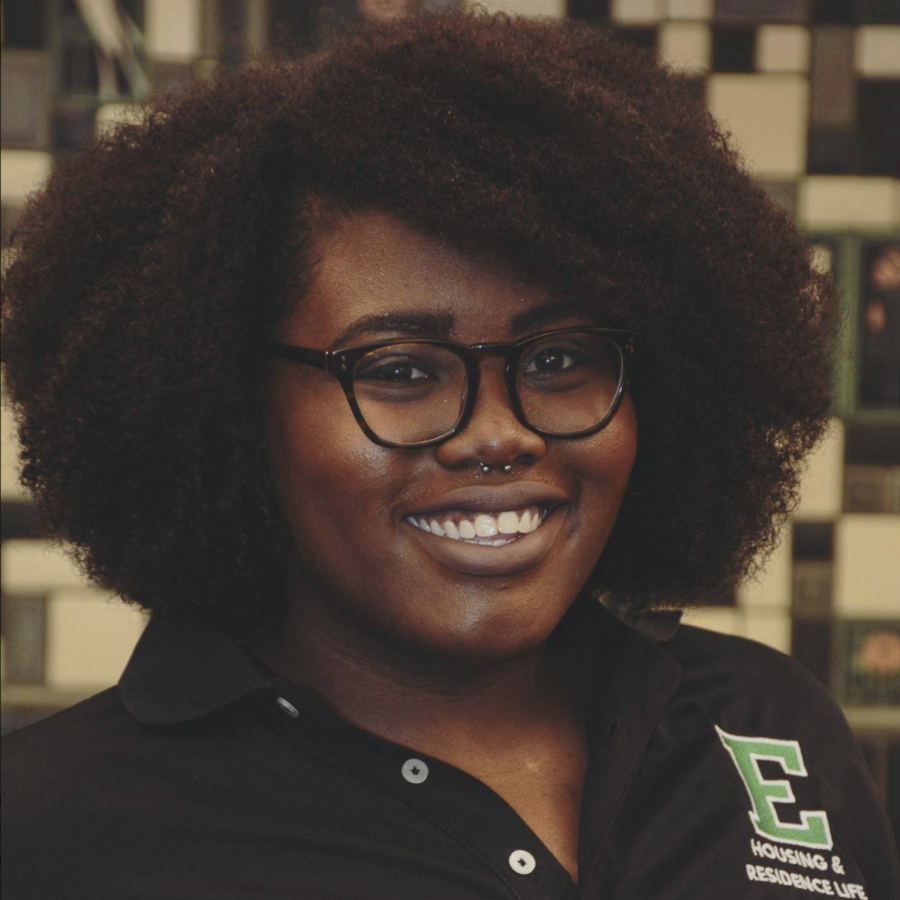Queer, black and female: these are three of the identities that Victoria Walters holds.
March 20, 2019
“I don’t see my being queer or my being a woman or my being black as a barrier so much as an identifier,” said Victoria Walters, the residence hall director of Korb and Leebrick halls. “It’s a recognized truth about myself.”
Despite her identities not being a barrier to success, she has faced challenges in life due to her gender, race and sexuality, she said.
“From a very, very young age, (I knew) that I was treated differently from boys,” Walters said. “I didn’t quite have the words for it, but I was really upset about it.”
Walters recalls being told to play house or paint in kindergarten while she wanted to build with Legos, and she remembers seeing mostly men in positions of power on the military base where she grew up.
As she got older, she experienced some “hateful” situations while out with friends.
“Thinking about some experiences I’ve had … someone is drunk and gets bold enough to say some really awful racist, sexist, homophobic things,” she said. “Multiple times in my life, I’ve not just been called ‘an N-word.’ I’ve been called ‘an N-word bitch,’ and so that is … so specifically targeted and hateful.”
Sexism and racism are sometimes connected, she said.
“The way that I experience racism is oftentimes sexualized, and the way
I experience sexism is often racialized,”
she said.
Similarly to when she was in kindergarten, Walters noticed the differences between how men and women are treated in their careers. Women often have to work harder to be seen as equally capable, exert more emotional labor and stand up for themselves less than men do, she said.
“If you are sticking up for yourself and someone did something wrong, women are very much taught not to make a fuss,” she said. “Whereas men are not socialized in the same way.”
Walters thinks that there is a good conversation happening about identities on Kent’s campus. She participates in this through being a residence hall director.
As a residence hall director, Walters does “social justice, diversity and inclusion work,” among other things — a “smorgasbord of all the things (she loves) about student affairs.”
Even a simple conversation can cause great change. This is the first time students are having a conservation about individuals who are different from themselves, Walters said.
Walters believes in being conscious of all different identities, capabilities and backgrounds.
“Always remember to center the most vulnerable of every population,” she said. “And thinking about Women’s History Month, make sure that you are going above and beyond to center and to promote the voices of black women, indigenous women, poor women, women who are sex workers, trans women, black trans women … not just centering white women and cis women and straight women.”
Alexandra Sobczak is a general assignment reporter. Contact her at [email protected].












